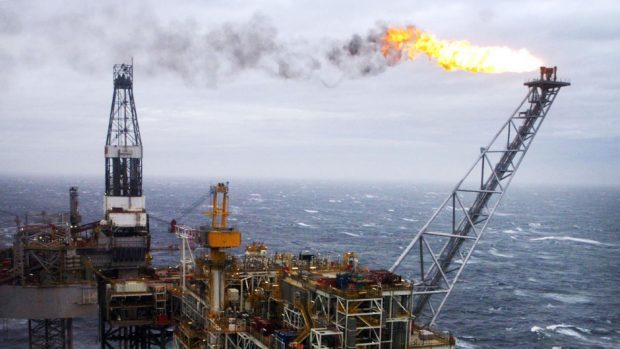Labour and the Conservatives claimed last night the economic case for independence now lay in “tatters” – after the Treasury’s fiscal watchdog downgraded its forecasts for oil and gas revenues.
Jackie Baillie said the numbers exposed the SNP’s “rose-tinted fantasy” of an independent Scotland’s finances.
Murdo Fraser agreed it cast the nationalists’ “deception” prior to the 2014 referendum into “stark relief”.
But an SNP spokesman said the “gleeful celebration” of the problems affecting the North Sea was “as predictable as it is pathetic”.
Yesterday, the Office for Budget Responsibility (OBR) revised down its November projections by an average of £500million a year from 2017/18 onwards, on a like for like basis.
At the Autumn Statement, it was predicting £1.5billion in receipts by 2021/22 – the end of the forecast period – but the new estimated revenue is £900million.
Scottish Conservative finance spokesman Mr Fraser called the figures “troubling” and said they demonstrated the “fragility” of the North Sea sector.
He added: “The SNP knew their oil forecasts were based on fantasy figures but they tried to fool people anyway. Their oil con has now been exposed for the tissue of lies it was.”
Miss Baillie, Scottish Labour’s economy spokeswoman, added: “The SNP’s economic case for independence now lies in tatters.
“The official projections for oil and gas revenues have been revised downwards yet again.”
The Scottish Government’s white paper on independence – published in November 2013 – estimated offshore receipts of £6.8 – £7.9billion in 2016/17.
An SNP spokesman said it spoke “volumes” that Labour’s “first instinct” was to attack the SNP.
He added: “The gleeful celebration of the problems affecting the North Sea oil industry is as predictable as it is pathetic.
“As for the Tories, they are on the shakiest of ground when they talk of referendum promises, given their blatant falsehoods on EU membership.”
He said a “Tory hard Brexit” was by far the biggest threat to Scotland’s economy, jobs and livelihoods, adding: “Independence must be an option to protect our vital national interests.”
Overall, the OBR upgraded its forecast for growth this year from 1.4% to 2%.
In 2018, it is predicted to slow to 1.6% before picking back up by the end of the forecast period.
The OBR also revised down its short-term public sector net borrowing forecast which is expected to fall over the course of the parliament to its lowest level in two decades by 2021/22.
Debt will rise, however, peaking next year before declining by the end of the forecast period.
Chancellor Philip Hammond said lower borrowing did not make the case for more unfunded spending in the future.
“We will not saddle our children with ever-increasing debts,” he told MPs.
